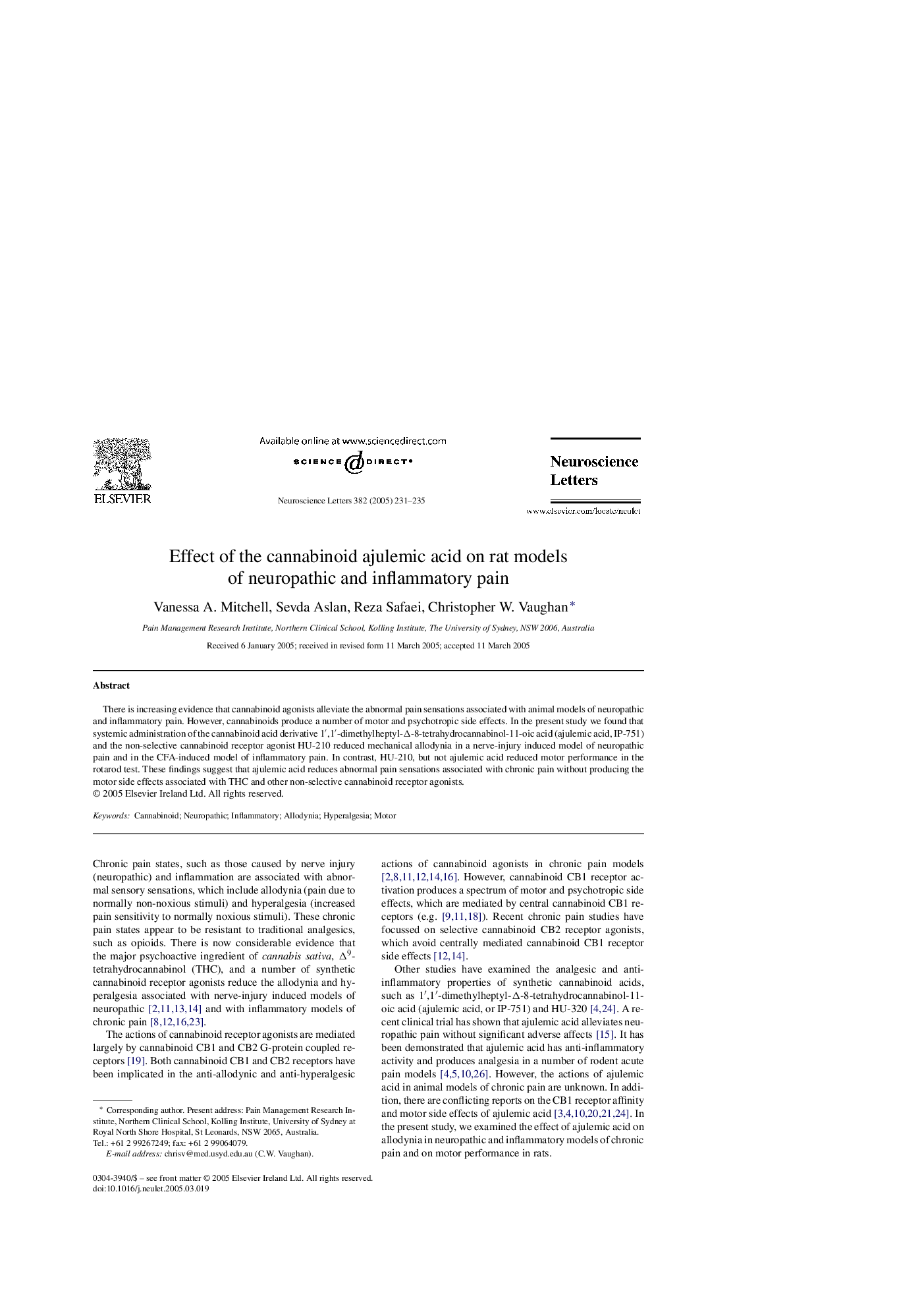| Article ID | Journal | Published Year | Pages | File Type |
|---|---|---|---|---|
| 9429504 | Neuroscience Letters | 2005 | 5 Pages |
Abstract
There is increasing evidence that cannabinoid agonists alleviate the abnormal pain sensations associated with animal models of neuropathic and inflammatory pain. However, cannabinoids produce a number of motor and psychotropic side effects. In the present study we found that systemic administration of the cannabinoid acid derivative 1â²,1â²-dimethylheptyl-Î-8-tetrahydrocannabinol-11-oic acid (ajulemic acid, IP-751) and the non-selective cannabinoid receptor agonist HU-210 reduced mechanical allodynia in a nerve-injury induced model of neuropathic pain and in the CFA-induced model of inflammatory pain. In contrast, HU-210, but not ajulemic acid reduced motor performance in the rotarod test. These findings suggest that ajulemic acid reduces abnormal pain sensations associated with chronic pain without producing the motor side effects associated with THC and other non-selective cannabinoid receptor agonists.
Related Topics
Life Sciences
Neuroscience
Neuroscience (General)
Authors
Vanessa A. Mitchell, Sevda Aslan, Reza Safaei, Christopher W. Vaughan,
